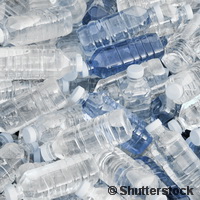A mark of trust for plastics recyclers
The EU-funded project EUCERTPLAST ('European certification of plastics recyclers') has developed a common certification scheme for post-consumer plastics recycling in Europe. Such a scheme helps recyclers and waste collectors, who would be able to guarantee that the plastic waste they collect is actually being recycled (rather than traded) and that this is done in a sustainable manner. "Before we started our work, the plastics recycling market was very fragmented, without strong European standardisation," says EUCERTPLAST project coordinator Antonino Furfari of Belgium's Plastics Recyclers Europe. "For instance, each European collector association had its own rules and requirements concerning which recyclers they could sell their waste to. There was simply no common European standard for recyclers." Plastics recycling is a big industry in the EU - around 16 000 people work for about 1500 companies, mainly small businesses, and handle 4.5 million tonnes of plastic waste per year. "We wanted to develop a Europe-wide certification scheme for post-consumer plastics recycling, a scheme for assessing the practices and the quality of the output of audited recyclers," says Furfari. The project succeeded in several ways. The project team managed to create a European certification that integrates a number of previously existing national and other schemes into one, representing a major rationalisation for recycling plants. "The certification also pushes recyclers to increase their own efficiency, and it means reduced administrative costs, in particular with respect to taxes and other financial operations," he says. The scheme has now been put into practice, with 25 audits having been undertaken. Furfari says responsible recyclers benefit from the certification, because it helps to increase confidence among waste collectors and also among users of recycled plastics, increasing market demand for plastics as a secondary raw material. "The EUCERTPLAST project will directly impact the wider European plastics industry, which employs 1.5 million," says Furfari. "Average citizens will ultimately benefit from more and better recycling and more sustainable plastic products on the market." EUCERTPLAST received about EUR 450 000 in EU funding and was completed in 2012.For more information, please visit:EUCERTPLAST websitehttp://www.eucertplast.eu/en/Project factsheethttp://www.eaci-projects.eu/eco/page/Page.jsp?op=project_detail&prid=12Plastics Recyclers Europehttp://www.plasticsrecyclers.eu/
Countries
Belgium

